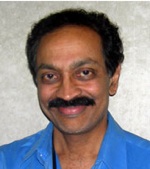Reading on: Neuroscience and self-awareness
Ramachandran, V. S. (Rama) "The Neurology of Self-Awareness" www.edge.org Jan. 8, 2007 [abstract – 520 words]
What is the self? How does the activity of neurons give rise to the sense of being a conscious human being? Even this most ancient of philosophical problems, I believe, will yield to the methods of empirical science. It now seems increasingly likely that the self is not a holistic property of the entire brain; it arises from the activity of specific sets of interlinked brain circuits.
I suggest that "other awareness" may have evolved first and then counterintutively, as often happens in evolution, the same ability was exploited to model ones own mind — what one calls self awareness. I will also suggest that a specific system of neurons called mirror neurons are involved in this ability.
Self has a sense of unity, a continuity in time, a sense of control or “free will,” sense of worth, dignity, mortality, of being anchored in a body. These may be mediated by different centers in different parts of the brain. Mirror neurons may be responsible for the sense of self awarness.
If a needle sticks us we feel pain when sensory pain neurons fire in our brain. Remarkably, researchers have found that some of them will fire equally strongly when the patient watches someone else being stuck with a needle. I call these "empathy neurons" for they are, dissolving the barrier between self and others. Notice that in saying this one isn't being metaphorical; the neurons in question simply don’t know the difference between themselves and others.
I suggest that self awareness is simply using mirror neurons for "looking at myself as if someone else is look at me" (the word "me" encompassing some of my brain processes, as well). The mirror neuron mechanism — the same algorithm — that originally evolved to help you adopt another's point of view was turned inward to look at your own self. This, in essence, is the basis of things like "introspection". It may not be coincidental that we use phrases like "self conscious" when you really mean that you are conscious of others being conscious of you.
The ability to turn inward to introspect or reflect may be a sort of metaphorical extension of the mirror neurons ability to read others minds. It is often tacitly assumed that the uniquely human ability to construct a "theory of other minds" or "TOM" (seeing the world from the others point of view; "mind reading", figuring out what someone is up to, etc.) must come after an already pre- existing sense of self. I am arguing that the exact opposite is true; the TOM evolved first in response to social needs and then later, as an unexpected bonus, came the ability to introspect on your own thoughts and intentions.
Note that I am not arguing that mirror neurons are sufficient for the emergence of self; only that they must have played a pivotal role. Have we solved the problem of self? Obviously not — we have barely scratched the surface. But hopefully we have paved the way for future models and empirical studies on the nature of self, a problem that philosophers have made essentially no headway in solving.


